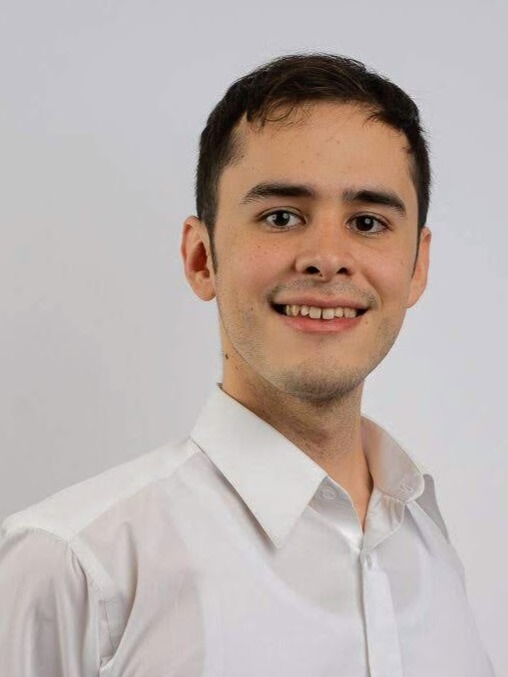Tutorial at the European Conference on Artificial Intelligence 2025
Welcome to the webpage for the tutorial „Environmental Values in AI Systems – an Interdisciplinary Tutorial for Incorporating Environmental Sustainability into AI Education and Practice„. The tutorial will be held as part of the European Conference on Artificial Intelligence (ECAI) 2025 in Bologna, Italy, from October 25 to 30, 2025.
Note: Sunday, October 26, 2 – 5.30pm
Overview
The broad challenge that our tutorial seeks to address is “How can environmental sustainability be brought into AI teaching, development and deployment?”
Environmentally sustainable AI refers to AI that is optimized with regards to two types of environmental effects: the first type are direct environmental effects, related to the AI systems’ life cycle energy and material requirements, such as greenhouse gas emissions in training, or hardware requirements. The second type are indirect effects that arise when AI systems are applied in other application domains, such as industrial companies or private households.
These AI applications increasingly influence human decision-making and may entail changes in production and consumption practices. For instance, targeted advertisement for individuals aims to increase consumption levels. AI could also be used to optimize production processes, and lead to structural changes in the economy, such as new business models. All these developments have inherent environmental consequences. The tutorial will show approaches to research and teaching on how to make developers and scholars aware of these effects and help them to mitigate negative impacts, as well as foster positive impacts. On the one hand, we will show approaches to making machine learning systems more sustainable by means of technological optimizations (addressing type 1 effects). On the other hand, we will broaden the perspectives of the participants by showing ways on how to anticipate (environmental) effects arising through the usage and diffusion of AI systems (addressing type 2 effects). We will discuss with the participants how to link both sides and align teaching/information materials for a more holistic view on environmentally sustainable AI.
The goal of this tutorial is not only to present best practices in the field of sustainability and AI, but also in bringing together a community of AI practitioners interested in becoming active about sustainability in their practice, as well as in their work. The objective is to enucleate the most salient topics on which research and education in AI should turn its attention to head in the direction of a more sustainable future, in a world where AI is more and more pervasive and its large-scale deployment entails significant tolls from environmental perspectives.
On this end, the concept of sustainability in AI will be discussed. Furthermore, the participants will reflect on methodologies and frameworks which aim at operationalising sustainability in AI development and use. Our goal is firstly to help disseminate the existing knowledge, expanding the awareness of the practitioners about the importance and necessity of considering sustainability when training and deploying AI models. In the future, we aim at expanding this awareness to the general public, showing the directions towards a sustainable AI. Additionally, we plan on developing teaching material for a future course on Sustainability and AI directed at AI practitioners.
Practical Objectives and Outcome
- Working in the direction of connecting researchers from different disciplines, working in the areas of AI and sustainability to enable joint learning about “environmentally sustainable AI” in a transdisciplinary dialogue (across scientific disciplines and practical experiences).
- Briefly presenting, from an interdisciplinary lens, some existing approaches for the development and use of “sustainable AI” from a technical and social science point of view
- Discussing challenges and opportunities related to the practical implementation and inherent trade-offs of “sustainable AI”
- Identifying next steps for research, joint outputs and possible collaborations across science, education, and practice.
As an outcome, participants will:
- have gained a better understanding of environmentally sustainable AI from an interdisciplinary point of view.
- have the chance to be part of a growing network on sustainable AI researchers and practitioners, with goals rooted both in research and in education.
- get access to resources to further engage with the topic of sustainable AI.
- have contributed to the further development of open-source information/teaching material on sustainable AI.
Contributor Bios

Dr. Stefanie Kunkel is an interdisciplinary social scientist. In her current position at the Research Institute for Sustainability (RIFS) at GFZ Helmholtz Centre Potsdam, Stefanie’s research focuses on the implications of digitalisation in globalised industrial production processes. For instance, she investigates the role of digital technologies in monitoring emissions along the supply chain. She also works on the question of how and by whom (policy makers, developers, …) artificial intelligence (AI) can be shaped to optimise its environmental impacts, such as AI’s risks and benefits for environmental protection. She previously worked and did research at the United Nations Environment Programme in Geneva, the Institute for Ethics in AI at the University of Oxford and the National Taiwan University in Taipei. She uses empirical social science methods such as interviews, document and statistical analyses.

Dr. Marco Zullich is a Lecturer at the Faculty of Science and Engineering in the University of Groningen, in the Netherlands, where he coordinates the courses in Trustworthy and Explainable AI, Unsupervised Deep Learning, and Object-Oriented Programming. He obtained his Ph.D. in 2023 with a dissertation on the topic of pruning in artificial neural networks. His line of research include explainable AI, fairness, and uncertainty quantification at the intersection with model compression (pruning, quantization, and knowledge distillation). He is also involved in the application of AI in digital humanities. See more information on: https://www.zullich.it/.

Juan Diego Cardenas Cartagena, M.Sc. is currently a lecturer at the University of Groningen and Ph.D. student in the department of information and communication technology at the University of Agder, Norway. He received a mechatronic engineering degree from the EIA University, Colombia, and an M.Sc. degree in mathematics and statistics from Queen’s University, Canada, in 2016 and 2019, respectively. His research focuses on safe deep reinforcement learning and data-driven control algorithms for safety-critical systems.

Dr. Malcolm Campbell-Verduyn is a senior lecturer in International Political Economy at the Department of International Relations and International Organization, University of Groningen, The Netherlands. His research and teaching primarily focuses on the roles of technologies in the governance of the global political economy. He has written extensively about the intersection of digital technologies and global economic governance, exploring how emerging technologies like blockchain and artificial intelligence are reshaping global regulatory frameworks and financial systems. He is co-editor Global Digital Data Governance: Polycentric Perspectives (Routledge 2024), Cambridge Global Companion to Financial Infrastructures (CUP 2025), as well as Ineffective Policy: Exploring the Ignoble Sides of Governance (Bristol UP 2025).